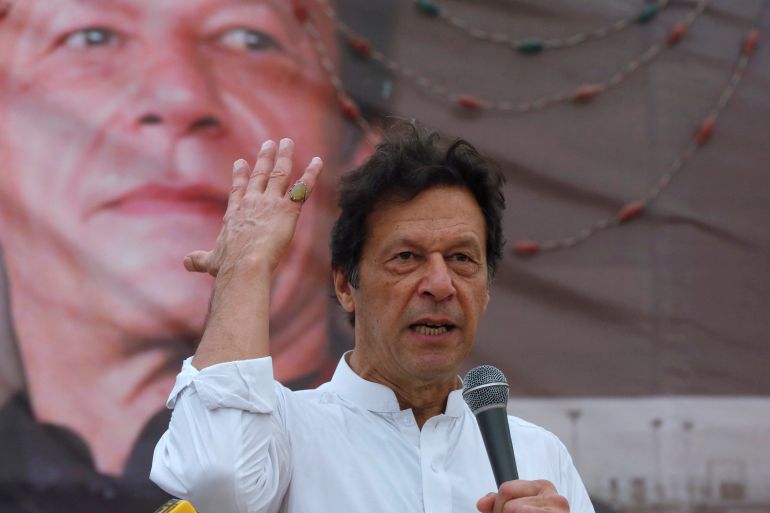Several Pakistan MPs defect from PM’s party before no-trust vote
Development comes a day after a key ally said Imran Khan was in danger of losing his coalition partners.

Several legislators from Pakistan Prime Minister Imran Khan’s ruling party have withdrawn their support for him ahead of a no-confidence vote, stoking more uncertainty over whether the former cricketer can hang on to power.
The development on Thursday came a day after a key ally said Khan was in danger of losing his coalition partners, flagging a “tilt” by his partners in government towards their opponents.
Keep reading
list of 4 itemsCan the Pakistani opposition alliance unseat PM Imran Khan?
Pakistan’s Khan: ‘Would love to debate with Narendra Modi on TV’
Will Pakistan’s National Security Policy work?
The opposition blames Khan for mismanaging the country, economy and foreign policy. No Pakistani prime minister has ever completed his term in office.
The threat of political turmoil in the nuclear-armed nation is growing as the opposition looks to remove Khan in a vote that could come as soon as this month after a no-confidence motion was unveiled in parliament last week.
“We have differences with the prime minister,” one of his legislators, Raja Riaz, told local Geo News TV.
“We will vote according to our conscience,” he said, claiming there were more than 20 defectors.
Three more legislators endorsed Riaz and TV channels showed recorded footage of several ruling party members at an office of the opposition Pakistan People’s Party (PPP) in Islamabad.
“We are clear that we will not get into any blackmailing to save our government,” Information Minister Fawad Chaudhry told a news conference. “We reject this culture of turncoats.”
Without the coalition partners and the dissidents, Khan’s Pakistan Tehreek-e-Insaf party, which has 155 seats in the lower house, would fall short of the 172 needed to retain power.
The joint opposition consists of major parties such as the Pakistan Muslim League-Nawaz and the PPP of former prime ministers Nawaz Sharif and Benazir Bhutto, respectively, and has more than 160 seats in the lower house.
The opposition and political analysts say Khan has fallen out with Pakistan’s powerful military whose support they see as critical for any political party to attain power in the way the former cricket star’s upstart party did four years ago.
Khan and the military deny the accusation.